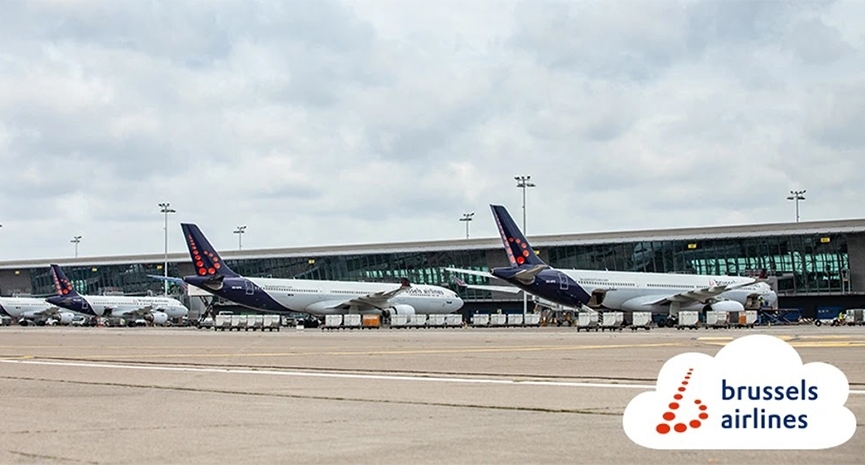Brussels Airlines posts EUR 182 million loss in H1
Brussels Airlines reported a loss of EUR 182 million in the first half of 2020,

August 6, 2020: Brussels Airlines reported a loss of EUR 182 million in the first half of 2020, despite the drastic cost-control measures taken to combat the crisis. First half revenues fell to EUR 252 million, 63 percent below their prior-year level. The airline transported 67 percent fewer passengers between January and June and the seat load factor dropped by 7.4 percentage points to 72.4 percent.
The coronavirus, which brought aviation worldwide to a standstill within a few weeks’ time, had a dramatic impact on the financial results of Brussels Airlines in the first half year of 2020.
Brussels Airlines temporarily suspended all scheduled flights from March 21 to June 14, 2020. Minimal flight capacities were maintained for repatriating Belgian and German citizens, to transport medical equipment to Africa and to bring medical masks from China. On June 15, the airline finally relaunched its commercial flights with a limited network.
The EBIT decreased to EUR 211 as compared to last year. The difference compared with the adjusted EBIT is due to write-downs of EUR 29 million on right-of-use assets consisting of two A330-200s and eight A319s already in the first quarter.
Revenues were down by 63 percent, from EUR 684 million to EUR 252 million. Brussels Airlines transported 1,590,448 passengers between January and June, compared to 4,854,603 last year. 14,114 flights were operated, a 64 percent decline compared to the 39,267 flights in the first half of 2019. The seat load factor dropped 7.4 percentage points from 79.8 percent to 72.4 percent.
The turnaround programme Reboot Plus, which was already planned before the coronavirus crisis hit, is now being further intensified as a result of the coronavirus outbreak. With Reboot Plus, Brussels Airlines is structurally tackling its cost structure and optimises its network by cutting marginally profitable and unprofitable routes, resulting in a fleet reduction of 30 percent. The overall size of the company, and as a consequence of its workforce, will become 25 percent smaller. At the same time, the airline focuses on structural profitability in order to enable solid growth. The carrier therefore needs to reduce its overall costs, increase efficiency and productivity. To reach its target of increased competitiveness and structural profitability, Brussels Airlines takes several measures; such as negotiations with lessors to reduce its fleet size; cost reductions through supplier negotiations; simplification and automation of processes; increase of efficiency at the level of operations and product alignment with the Lufthansa Group network airlines.


